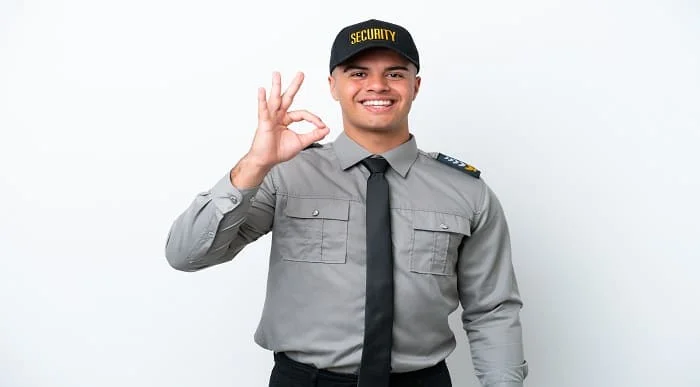Health and Social Care
How to Become a Safeguarding Officer
Every organisation requires a safeguarding officer to ensure a quick response to any safeguarding concerns. Having a safeguarding officer means taking appropriate measures to protect children or young adults before it is too late. Thus, safeguarding officers play a crucial role in promoting a safe environment.
Being a safeguarding officer, you get the opportunity to be a part of this gratifying job as the role provides ample scope to get more involved in helping and supporting the children and vulnerable adults along with promoting and protecting positive health and wellbeing.
If you are interested in the safeguarding profession and want to know how to become a safeguarding officer, give read to this blog.
Table of Content
- What is Safeguarding?
- What are the Six Principles of Safeguarding?
- Why is Safeguarding Important?
- Who is a Safeguarding Officer?
- What are the Duties of a Safeguarding Officer?
- Who can be a Safeguarding Officer?
- Qualifications Required to be a Safeguarding Officer:
- In a nutshell, someone who has undergone safeguarding training should be able to-
- Salary Range of A Safeguarding Officer:
- Tips on How to Become an Eligible Safeguarding Officer:
- Conclusion
- What to Read Next:
What is Safeguarding?
Safeguarding is the process of protecting children and adults from harm, abuse, and neglect. It is also about having the ability to reduce any sort of exploitation by raising awareness and supporting people in making informed decisions.
It is the duty of every safeguarding officer in a school, workplace or organisation to safeguard all the staff, vulnerable adults and children.
What are the Six Principles of Safeguarding?
The six principles set out by The Care Act underpin the safeguarding of children and adults. Though initially introduced for adults, the principles are applicable for children as well.
1. Empowerment
Ensuring that people are supported and encouraged to make their own decisions and giving informed consent.
2. Protection
Providing support and representation for those in greatest need.
3. Prevention
It is better to take action before harm occurs; preventing harm or abuse is the primary objective.
4. Proportionality
Take a proportionate and least intrusive response to the risk presented.
5. Partnership
Forming partnerships with local communities can create solutions as they can assist in preventing, detecting and reporting abuse.
6. Accountability
Accountability and transparency in delivering safeguarding practice.
Why is Safeguarding Important?
The role of safeguarding comes with a heap of responsibilities since it requires dealing with vulnerable groups, especially children. Safeguarding ensures the right to live without fear of abuse and neglect along with the protection of basic human rights.
If an organisation has poor safeguarding policies then it could result in-
- An increase in abuse cases
- Possibility of abuse and neglect being missed
- Vulnerable people being mistreated
- Confusion and distress among suffering individuals because they have no one to ask for help
- A complete loss of dignity and autonomy for vulnerable adults
Recognise the importance of safeguarding in health and social care.

Microsoft Excel Advanced Training
- Accredited Courses
- Tutor Support Included
- 3 Installment Plan at checkout
- 14 Days Money Back Guarantee
Who is a Safeguarding Officer?
A Safeguarding Officer, also referred as Designated Safeguarding Lead (DSL), is a person who is primarily responsible for managing and reporting concerns about children within an organisation. Along with promoting children’s wellbeing and protecting them from harm or abuse, a safeguarding officer also delivers training and updates policies regarding child safety.
The role of a safeguarding officer is performed by one person or split between staff. Hence, larger organisations often have a safeguarding team. Boards of governors, management committees and trustees should also have safeguarding officers.
What are the Duties of a Safeguarding Officer?
There are various skills which can aid you in being a potential safeguarding officer which are as follows:
Good People Skill-
Safeguarding officers need to speak to colleagues, parents, and carers about safeguarding issues along with children. That is why good people skills are required for them so that they can speak to children with calmness and patience about delicate topics.
Active Listening Skills-
Active listening is about understanding the message that the speaker is trying to convey. Hence, this is a vital skill that every safeguarding officer should possess. Since safeguarding officers are approached for advice by staff and volunteers, they should try to listen actively.
Organisation skills-
As you would be in charge of keeping records of any complaints or questions that arise, whether it’s from children, their parents or other staff you are working with, a good organisation skill would help you to remember and keep the documents safe. That is why, to be a safeguarding officer, you need to be responsible and organised.
Being Considerate-
You should try to be supportive and understanding instead of judgmental if you are a safeguarding officer. As a result, people will approach you with their safeguarding concerns and issues if you are more considerate.
Ability to Work under Pressure-
As a safeguarding officer, you have to deal with difficult situations and listen to distressing information, which can often become stressful. So, safeguarding officers need to stay calm and focused to work under pressure.
Who can be a Safeguarding Officer?
Anyone with knowledge of how to interact and deal with children can become a safeguarding officer. Since this task is mostly concerned with children, safeguarding officers should be patient, tolerant and empathetic. Further, it is crucial for safeguarding officers to have appropriate knowledge of all relevant legislation and stay informed about any changes in the safeguarding policy. Consequently, someone who has previous experience of working with children would be benefitted taking on the role.
Furthermore, a safeguarding officer must be free from any sort of criminal allegations or history and shall pass all the relevant advanced DBS (Disclosure and Barring Service) checks since they need to interact with children.
Qualifications Required to be a Safeguarding Officer:
In order to become a Safeguarding Officer, you need to undertake relevant safeguarding training so that you have adequate safeguarding knowledge to keep children safe.
There are usually 5 levels of safeguarding training. Subsequently, each level prepares the safeguarding officers to take up the responsibility and perform well in their roles.
The safeguarding Level 1 training provides students with an understanding of the signs and symptoms of abuse and how to report it. Further, at Level 2, learners gain insight into safeguarding legislation. Accordingly, at level 3, learners will learn how to contribute and manage safeguarding plans for individuals.
Furthermore, Levels 4 and 5 are for those involved in the protection process of children or young adults at a higher level. These advanced levels include case studies and group work.
In a nutshell, someone who has undergone safeguarding training should be able to-
- Thoroughly understand the assessment process for providing early help and intervention
- Ensure each member of staff understands the child protection policy and procedures
- Stay alert to the specific needs of children in need
- Understand relevant data protection legislation and regulations
- To provide advice and support to staff on protecting children from potential risks
- Being the very first point of contact for all the staff and volunteers to go to for advice if they are concerned about a child
Salary Range of A Safeguarding Officer:
According to uk.talent, “The average safeguarding lead salary in the United Kingdom is £38,613 per year or £19.80 per hour. Entry level positions start at £28,617 per year while most experienced workers make up to £55,601 per year. “
As per glassdoor, “The highest salary for a Safeguarding Officer in the United Kingdom is £45,401 per year and the lowest salary for a Safeguarding Officer in the United Kingdom is £23,662 per year.”
Tips on How to Become an Eligible Safeguarding Officer:
You can consider the following tips to be an effective and confident safeguarding officer:
Stay updated:
As a safeguarding lead, try to stay up-to-date with your knowledge and understanding of child protection and safeguarding issues, including forms of abuse and harm vulnerability factors.
In addition to this, you should participate in DSL training every two years and refresh your knowledge and skills.
Also, provide regular updates to all the staff through briefings and quizzes at staff meetings, emails, newsletters and noticeboards.
Know your responsibility if an allegation is made:
Accordingly, be clear about your statutory responsibilities in the event of an allegation against a member of your team. Simultaneously cooperate with your local authority designated officer and follow your setting’s procedures.
Be tech aware:
Develop strategies to keep children safe while using social media or technology and be aware of the risks.
You should also, talk to parents and your team to help them understand the risks and keep the children safe online.
Be clear about policies and records:
Know about your organisation’s policies and records and ensure that all the policies and procedures are effective and also review them at least annually.
Work with your team and also, parents:
Select the staff and volunteers carefully and keep records of all adults working in your organisation and ensure that your team feels confident in dealing with any unfortunate event.
Also, make sure all the members of your team feel safe to approach you with any safeguarding concerns, and that you provide a safe space for professional challenge.
Furthermore, if you are working in a school setting, develop effective relationships with your parents and work together to keep their children safe. Parents should be made aware of your role as a safeguarding officer. They should know what action you will take if there is any safeguarding concern.
Conclusion
Safeguarding officers actively participate in maintaining safety and protecting children from any unwanted harm or risk. Their contribution in ensuring the health and wellbeing of the vulnerable group cannot be denied. Becoming a safeguarding officer is not a hectic process; safeguarding knowledge and appropriate training will aid you in becoming a safeguarding officer.
What to Read Next:
- Safeguarding in Health and Social Care Assignment – Free Download
- What are the 6 Key Principles of Safeguarding
- What is DBS check? how long does a DBS check take
- How to Become a Phlebotomist










